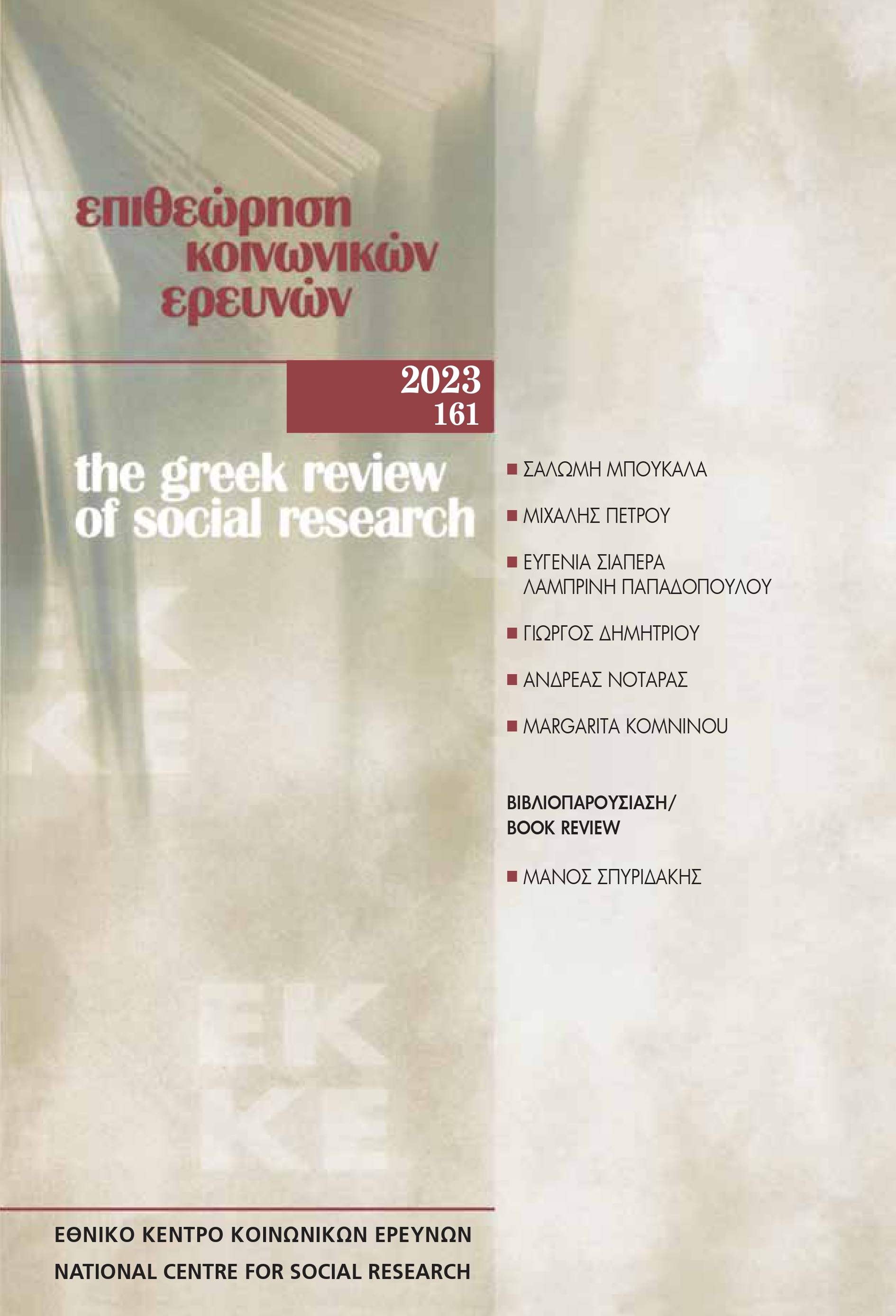Informal economic activity and political consumption

Abstract
Drawing upon findings from an ethnographic study conducted in crisis-ridden Greece, this article explores consumer participation in the informal economy and illustrates the diversity of political discourse embedded within this type of economic activity. The study focused on 24 consumers from three distinctive theoretical categories (termed ‘ethical consumers’, ‘active citizens’ and ‘disqualified consumers’) and involved a variety of data collection methods (including observation, kitchen tours, shop-along and interviews). Empirical evidence demonstrates that to fully appreciate consumer activity and consumer agency in the informal economy, it is imperative to recognise informal modes of acquisition and exchange that do not resemble formal market transactions.
Article Details
- How to Cite
-
Komninou, M. (2023). Informal economic activity and political consumption. The Greek Review of Social Research, 161, 157–183. https://doi.org/10.12681/grsr.35039
- Issue
- 2023: 161
- Section
- Articles

This work is licensed under a Creative Commons Attribution-NonCommercial 4.0 International License.
Authors who publish with this journal agree to the following terms:
- Authors retain copyright and grant the journal right of first publication with the work simultaneously licensed under a Creative Commons Attribution Non-Commercial License that allows others to share the work with an acknowledgement of the work's authorship and initial publication in this journal.
- Authors are able to enter into separate, additional contractual arrangements for the non-exclusive distribution of the journal's published version of the work (e.g. post it to an institutional repository or publish it in a book), with an acknowledgement of its initial publication in this journal.
- Authors are permitted and encouraged to post their work online (preferably in institutional repositories or on their website) prior to and during the submission process, as it can lead to productive exchanges, as well as earlier and greater citation of published work (See The Effect of Open Access).


